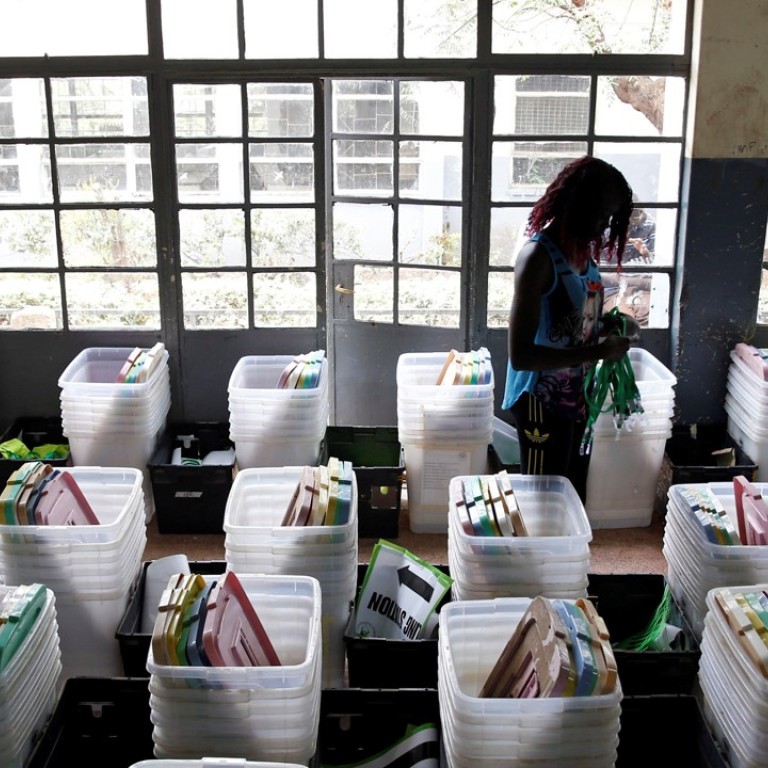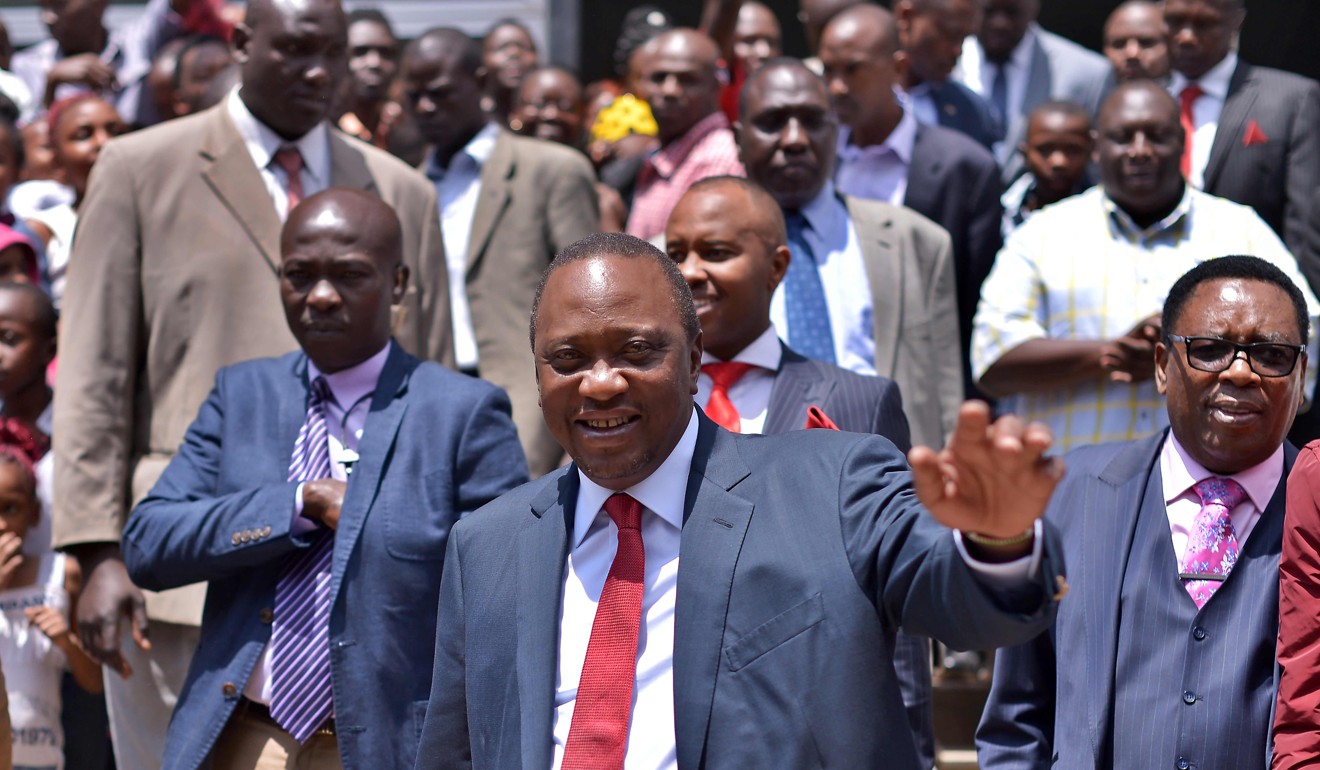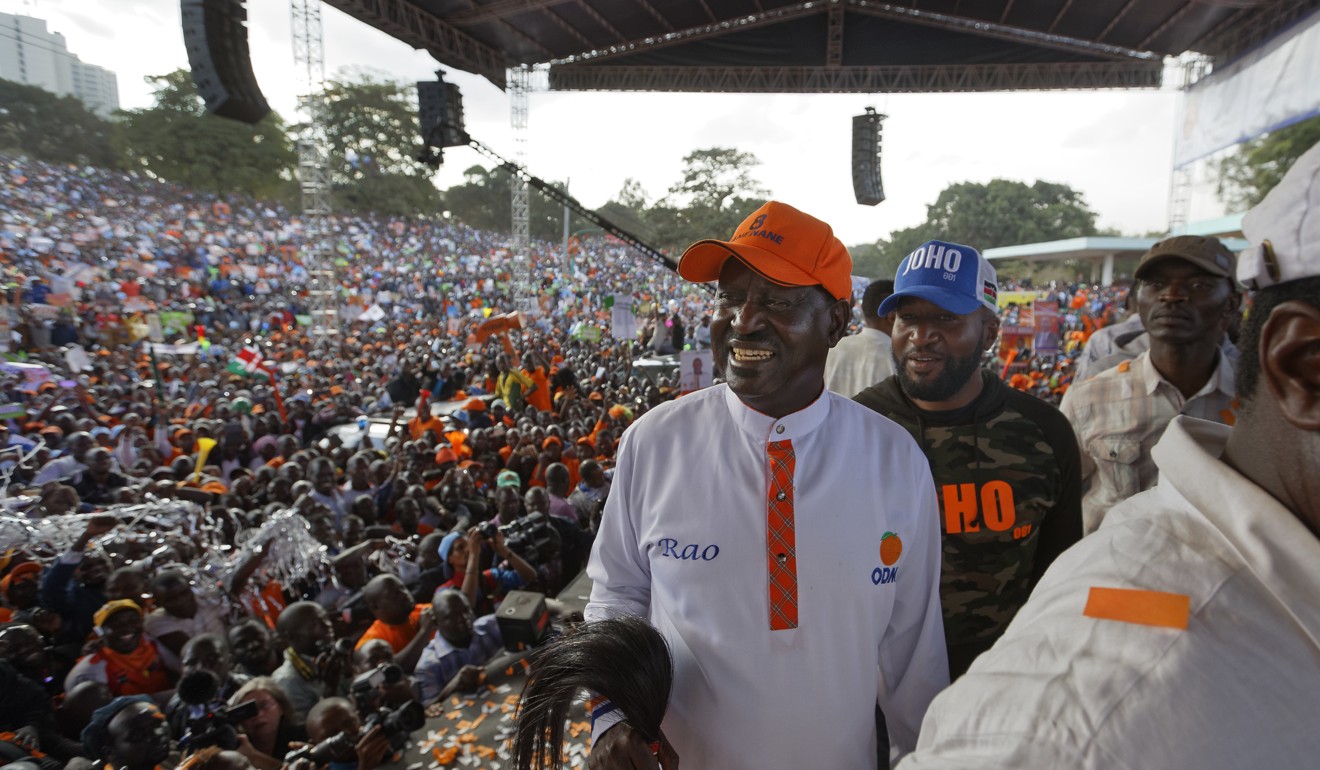
Memories of violence in aftermath of 2007 election prompt Kenyans to leave cities before poll
Uhuru Kenyatta has been president since 2013 and is standing for a second term, while Raila Odinga is a long-time opposition leader who disputed his defeat in both 2007 and 2013
In recent days, the queues of early morning travellers at Nairobi’s long-distance bus stations have been thick with people seeking to leave the city. In supermarkets, the aisles are cramped with shoppers pushing convoys of trolleys stacked high with provisions.
In the run-up to today’s elections the signs were clear: a tight race and a history of political violence meant many Kenyans were taking no chances, choosing to head for the sanctuary of their ethnic heartlands for the election period. Some will vote there, where they are already registered, but others are trading their franchise for safety.
“You cannot predict how the situation will be,” Ezekiel Odhiambo said at a Nairobi bus terminal after putting his five daughters on a bus to the countryside.
I don’t want to play a 50-50 betting game. I want to be sure
Worries like these are common around election time in Kenya, exacerbated by memories of the bloody months after the disputed 2007 vote, when politically motivated ethnic violence killed at least 1,100 people and displaced 600,000.
This year, security chiefs said there will be 180,000 officers on the streets – everyone from the police to the forest service – to ensure the vote is at least as peaceful as it was during Kenya’s last election in 2013.
Still, people are “hoping for the best but preparing for the worst,” said Peter Wairimu, a service station attendant, where sales have dropped off in recent weeks as people have left town.
The two main candidates are well-known to Kenyans. Uhuru Kenyatta has been president since 2013 and is standing for a second term, while Raila Odinga is a long-time opposition leader who disputed his defeat in both 2007 and 2013.
In the run up to this week’s vote, both candidates have refrained from making inflammatory speeches, observers said, perhaps a consequence of the International Criminal Court’s now-abandoned indictment of Kenyatta and his running mate William Ruto for their alleged roles in the 2007 bloodshed.

Yet people are nervous: hate speech fliers and text messages have been circulating, both candidates have accused the other of underhanded campaign tactics and seem convinced anything other than victory will be evidence of rigging.
Many Kenyans simply don’t trust their politicians not to stir up trouble. Editar Ochieng, a resident of the Nairobi slum Kibera, where clashes broke out in 2007, has sent her two daughters out of town for the elections.
“I don’t want to play a 50-50 betting game. I want to be sure,” she said.
Kenya’s police chief and interior ministry have tried to reassure Kenyans that they have nothing to fear, but people are hitting the road and stocking their pantries anyway.
“There is a frenzy right now,” said Hanif Rajan, group operations managers for supermarket chain Chandarana.

Five months ago, he put in extra orders for essentials like water, rice, batteries and frozen ground beef, anticipating the election rush.
Down at Nairobi’s Machakos bus station, transport bosses have more than doubled fares on some routes, but that hasn’t stopped a surge in customers who line up before dawn each morning for a bus to Kenya’s west where Odinga is strongest.
Those travellers may represent votes that Odinga desperately needs to win what is probably the 72-year-old’s last run at the presidency.

.png?itok=arIb17P0)